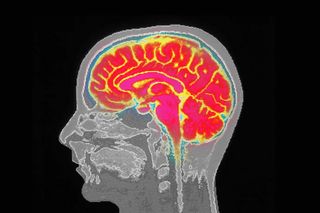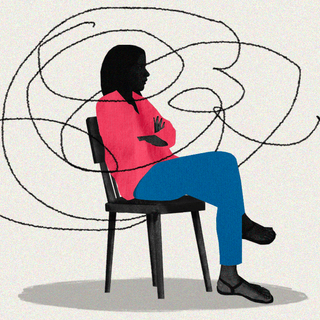
Even Mild Covid19 Can Change the Brain, Finds New Study
The research is the first to reveal differences in the brain regions based on scans taken before and after an infection.

Anecdotally, a Covid19 infection is spoken in terms of how people experienced a loss of smell and inexplicable brain fog — a deficit in cognitive functioning that impacts memory in mysterious ways. Whilescientists have long speculated how the virus may change brain cells, new research offers conclusive proof of how even relatively mild cases of Covid19 are linked to tissue damage and loss in the brain region tied to the sense of smell — at least in the initial months since the infection.
The study, published in Naturejournal on Monday, was led by University of Oxford investigators. The research is the first undertaking to plug gaping holes in any brain-related studies around Covid19. “This study design overcomes some of the major limitations of most brain-related studies of Covid-19 to date, which rely on analysis and interpretation at a single time point in people who had Covid-19,” said Dr. Serena S. Spudich, a neurologist at the Yale University School of Medicine, who was not involved in the research. In other words, the scope and time period offers a unique case study of the long-term health impact of Covid19. The present study also includes a group underrepresented in most Covid19 studies about the brain: those with mild Covid19.
The researchers looked at MRI scans taken both before and after participants contracted the coronavirus — making it a rare exploration. They invited 401 participants — whose health data was already logged into the U.K.’s Biobank — who had mild Covid19 during the first wave for a scan 4.5 months after their infection. Their scans were then compared with the 384 participants who had not contracted Covid19.
Notably, the scans revealed striking differences: the very size of the brain had shrunk after the infection, and the regions related to smell and memory had lesser grey matter. Even those who had recovered from Covid struggled to perform complex mental tasks — measured through what’s known as “executive function.”
Related on the Swaddle:
‘Long Covid’ Patients In India Are Struggling, But Their Plight Remains Unseen
“We were looking at essentially mild infection, so to see that we could really see some differences in their brain and how much their brain had changed compared with those who had not been infected was quite a surprise,” said lead author Gwenaelle Douaud, from the Wellcome Centre for Integrative Neuroimaging, at the University of Oxford. Douaud in an interview added that this extent of losing brain volume is “equivalent to at least one extra year of normal aging.”
This is akin to brain damage — but the good news is it’s reversible. “We need to bear in mind that the brain is really plastic – by that we mean it can heal itself – so there is a really good chance that, over time, the harmful effects of infection will ease,” Douaud said.
Covid19 is an isolating experience, and the continued tussle with Long Covid19 is beginning to show how survivors experience the aftermath in intricate, unseen ways. Symptoms like brain fog, fatigue, loss of taste/smell (there are 204 recorded symptoms of post-Covid complications) can linger on for days, weeks, or months — with many developing a cluster of several issues that impact physical and mental health — and quality of life.
“Limited understanding and awareness of long Covid lead to an apathetic, half-hearted response to survivors… But the prevalence of long-term complications is telling of the massive burden the disease is likely to have in the coming years,” an article in The Swaddle noted. Rimil, 26, who experienced some of these symptoms, said the “expectations people set about others’ health impact the lack of compassion and empathy shown to survivors.”
Only recently, a study found how the coronavirus may take away the sense of smell — shedding some light on the biological mysteries of the infection. These insights could help explain how the biology is altered after Covid19 and what are the underpinnings of long Covid19.
There are a lot of things still unknown. Do all the variants have the same impact on individual biology? Does the virus attack the brain regions or do cells simply deteriorate forother reasons before Covid19 infection, for instance? And what if a larger population globally who has experienced relatively gentler forms of Covid19 hassimilar cognitive damage. There remain significant long-term implications that warrant more deliberate examination.
According to the Biobank chief scientist Naomi Allen, this research is just the beginning: “It opens up all sorts of questions that other researchers can follow up about the effect of coronavirus infection on cognitive function, on brain fog, and on other areas of the brain – and to really focus research on how best to mitigate that.”
Saumya Kalia is an Associate Editor at The Swaddle. Her journalism and writing explore issues of social justice, digital sub-cultures, media ecosystem, literature, and memory as they cut across socio-cultural periods. You can reach her at @Saumya_Kalia.
Related


Why Holding Grudges Can be Emotionally Satisfying
